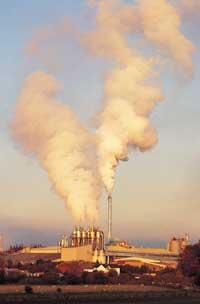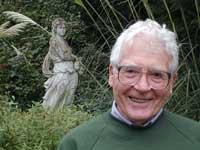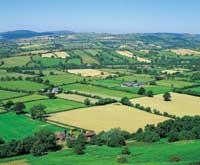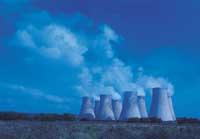Lovelock's last word. The father of the Gaia hypothesis generates debate

This philosophy did not correspond to the European one. The European appropriated the land. In fact, when both European and Indian cultures met, ownership of the area was one of the main problems of understanding. The white man placed barriers on the grounds and made them his own. Then he was the owner of the area where he wrote on paper, and from then on other human beings had to respect that nonsense. All: both whites and Indians. The absurdity of the Europeans won the battle between philosophies.
The Indian point of view, the losing point of view, was intelligent. The Earth is there and man lives in it, indeed, it is part of it.
Before moving forward, reader, just in case, we must remember that you and I are a fervent follower of the absurd; that we want for us the land that is ours, and that we are in favor of being so, although sometimes we claim on a theoretical level the philosophy of the Indians.
In Western society we are not the first to enact this theory. For example, Plato wrote that planet Earth could be a living being. But it cannot be said that this idea has been very successful. Yes, it spread in Western society, but as a very theoretical concept. In short, a society based on private property will hardly advance such an idea.

The consideration of the earth as a living being from an ecological point of view. It involves an ecological reflection both on the relationship with the biosphere, with all living beings, and with the atmosphere. This ecological consciousness developed from the 1960s, when James Lovelock was studying the relationship between planets and life. Lovelock was analyzing the alleged life of Mars for NASA, but his reflections began to apply in the case of Earth.
The Earth's atmosphere is very special, especially compared to the surrounding planet. This atmosphere, as we learned in ikastola, is mainly composed of nitrogen and oxygen. Obviously, this chemical composition is the result of life, that is, we have the oxygen in the air because the Earth is alive, and analyzing the atmosphere, one of the coming from space can know that the Earth is alive. All this was clear to Lovelock, even thought that if life disappeared would change the composition of the atmosphere, it would not be. For example, oxygen would oxidize the Earth and disappear from the air.
However, there are other gases in the Earth's atmosphere in very small proportions. One of them is carbon dioxide. Carbon dioxide is very abundant in the atmosphere of the planets around it; the dense atmosphere of Venus and the fine atmosphere of Mars are formed by carbon dioxide. On Earth there is very little carbon dioxide in the atmosphere, but human activity is causing an increase in this gas.

The increase in carbon dioxide, greenhouse effect and global warming is now assumed. The Earth is not the only one, in Venus the greenhouse effect is huge and the skin is 464 degrees on average. There is no doubt that the probability of living there is very small.
Obviously, the Earth will not come to this situation, among other things because it will not have an atmosphere as intense as Venus. However, increasing the concentration of carbon dioxide is a serious problem. Lovelock noticed this and told President Margareth Thatcher at a time when there were few people who were concerned about this problem.
Lovelock's main contribution was to collect this theory that considers the Earth as a living being and develop it from the point of view of a scientific study. The topic was called hypothesis. The topic launched the hypothesis around 1980 and has since become a classic in ecology.
Now, Lovelock is 84 years old and we consider him a prestigious scientist. There is no doubt. That's why he has surprised many people with the article he published two weeks ago in The Independent.

In this article, the legendary ecologist James Lovelock has defended nuclear energy. He has surprised environmentalists, scientists and other experts. In any case, it must be said that they are not crazy ideas of an old man, but a well thought out thing. Lovelock believes that nuclear power is the only option to quickly combat the greenhouse effect. The reason is very simple: nuclear energy does not generate carbon dioxide emissions.
Is there no alternative? Not one? Greenpeace and other environmental groups respond quickly. They are committed to renewable energy as the best solution to begin repairing global warming. However, currently, renewable energies do not provide enough energy to supply all of us. A complex problem, right?
Published in 7K.
Buletina
Bidali zure helbide elektronikoa eta jaso asteroko buletina zure sarrera-ontzian











